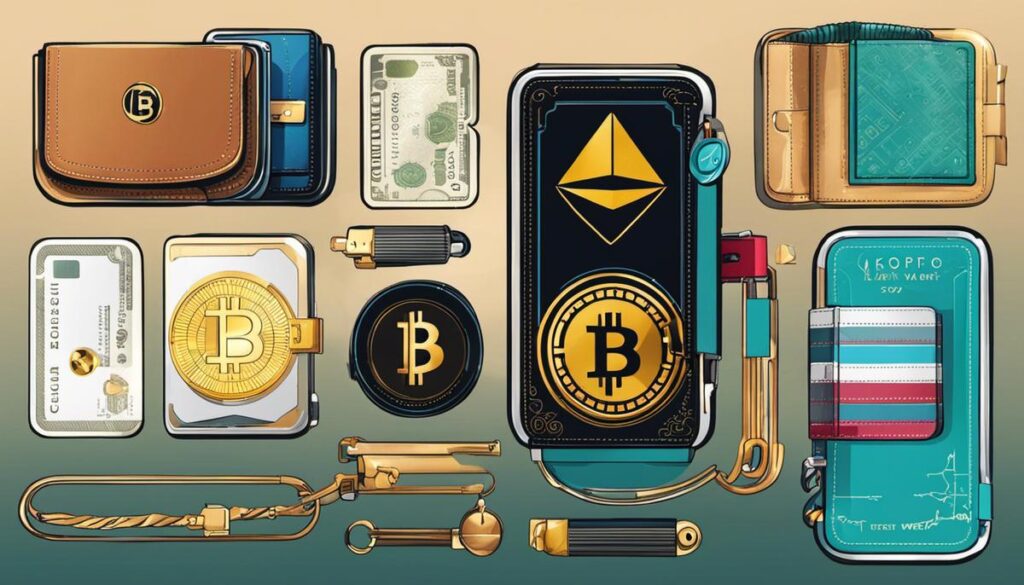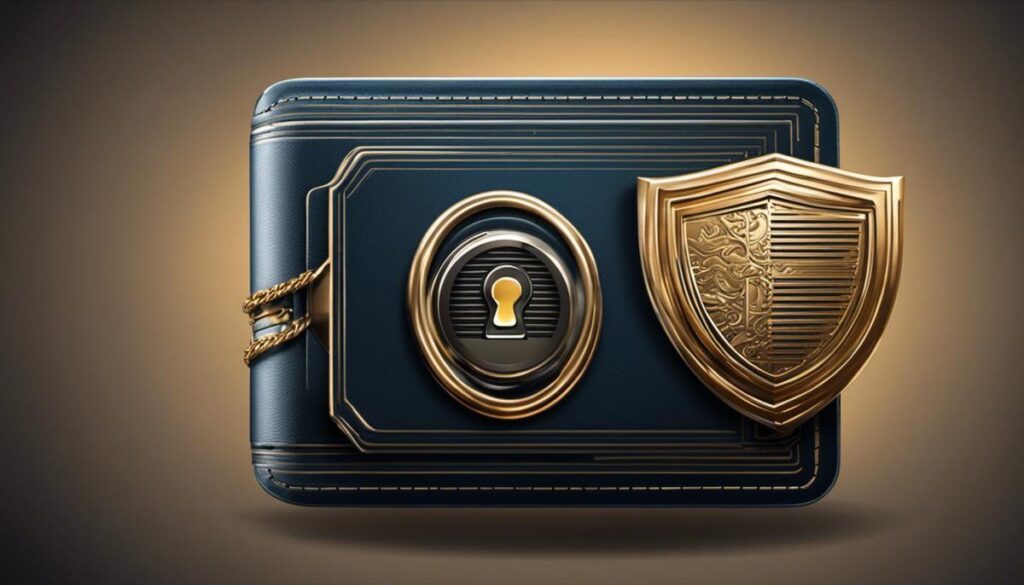Understanding Crypto Wallets: Your Guide to Digital Currency
In the dynamic world of digital currencies, understanding the concept and functionalities of crypto wallets is significant. As cryptocurrencies continue to gain momentum around the globe, it is crucial to grasp their underlying premise and how they are stored and transacted. This knowledge is not limited to tech enthusiasts but also paramount for the general public as it shapes the future of decentralized finance. In this discourse, we will embark on an enlightening journey from understanding the foundations of cryptocurrencies to the nitty-gritty of crypto wallets, their types, how they work, the risks involved, and choosing the best wallet based on personal requirements.
Understanding Cryptocurrencies and Their Foundation
Understanding Cryptocurrencies
Cryptocurrencies can be thought of as digital or virtual forms of money, using cryptography for secure transactions. While they serve the same utility as physical currency like dollars or euros, cryptocurrencies exist purely in a digital space. They represent a technology that integrates finance and cryptography, enabling secure transactions between individuals without a mediator, such as banks.
Bitcoin, launched in 2009, is famously known as the first decentralized cryptocurrency. However, since then, several thousands of new altcoins, or alternative coins, have been created. Most altcoins are variations or forks of Bitcoin and use the basic building blocks of the Bitcoin framework to develop new currencies. Others, like Ethereum or Ripple, introduce entirely new concepts to the digital currency space.
Understanding Blockchain Technology
Blockchain is the underlying technology powering every cryptocurrency. It is a type of distributed ledger or decentralized database that keeps records of digital transactions. Instead of having a central administrator like a traditional database, such as a bank or government, a blockchain has a network of replicated databases, synchronized over the internet and visible to anyone within the network. This decentralization, transparency, and security make blockchain very attractive for financial transactions.
Every transaction in the blockchain is stored in blocks, and these blocks are linked to each other in a linear, chronological order, thus the name “blockchain.” The linked structure of the blocks makes tampering with the transaction data difficult, providing another layer of security. Once the data is recorded in a block, it cannot be altered or deleted without the consensus of the entire network, creating an immutable, secure record of transactions.
Principle of Decentralization and Security
In a decentralized system like blockchain, there’s no central authority or server. Transactions are approved by a network of computers also known as nodes. Every node has a copy of the entire blockchain, increasing redundancy and resilience. For a transaction to be approved, it must be validated by most nodes in the network. This process prevents double-spending, fraud, and manipulation.
The use of sophisticated encryption techniques ensures the ledger and transaction data remain secure. Cryptocurrencies primarily use the SHA-256 cryptographic algorithm, renowned for its security and stability. This level of protection makes it nearly impossible for hackers to compromise the system.
Cryptocurrencies as Digital Assets
Cryptocurrencies are also increasingly being viewed as digital assets. Unlike traditional fiat currencies, cryptocurrencies are deflationary, meaning they have a maximum limit. For instance, the total number of bitcoins that can ever exist is exactly 21 million. This controlled supply often introduces scarcity, making cryptocurrencies valuable, similar to gold or other precious metals.
Demystifying Cryptocurrency Wallets
A cryptocurrency wallet, commonly known as a crypto wallet, acts as a digital storage system for your virtual currencies. It enables you to store, send, and receive cryptocurrencies securely. Crypto wallets are essential for managing your private keys, which are confidential, cryptographic data that let you access your digital assets on the blockchain. For security reasons, it’s strictly advised not to disclose these private keys as losing them essentially means losing access to your cryptocurrencies.
Various types of crypto wallets exist, including online or web-based, mobile, desktop, hardware, and paper wallets. Online and mobile wallets are known for their convenience, whereas hardware and paper wallets are reputed for providing optimal security for your digital currencies. Therefore, when choosing a crypto wallet, it’s important to consider your needs, the size of your investments, and your risk tolerance.

What is a Crypto Wallet and How does it Work
Grasping the Functionality of Crypto Wallets
In the simplest words, a crypto wallet is a digital vault for your cryptocurrencies. It functions similarly to your everyday bank account, the key difference being it doesn’t hold physical money but instead, it’s home to virtual assets like Bitcoin, Ethereum, Litecoin, etc. While most crypto wallets are software applications designed for digital platforms, some exist as hardware devices.
These wallets interact with multiple blockchain infrastructures, assisting users in managing their cryptocurrencies. They not only provide an overview of your investment balance but also facilitate transactions, both incoming and outgoing. Think of your crypto wallet as your personal interface to the blockchain world!
Functionality of Crypto Wallets
Crypto wallets serve a vital role in the cryptocurrency ecosystem by providing a way to secure and manage the cryptographic keys associated with blockchain-based assets. To use or store a digital currency, you need a crypto wallet. The information stored in a crypto wallet includes the public and private keys required for cryptocurrency transactions. The public key is like your bank account number, which you can share with others to receive cryptocurrencies. The private key is like your bank account PIN- you should never share it with anyone as whoever has access to your private keys can control your cryptocurrencies.
Security of Crypto Wallets
Securing crypto assets in a digital wallet is extensively important. It ensures that your investments are safe from hacks, unauthorized access, and other potential security threats. Wallets provide control over your private keys and thus, your funds.
Transactions with Crypto Wallets
Crypto wallets not only store cryptocurrencies but also allow for transactions. When you want to send or receive cryptocurrencies, you do so through your crypto wallet. When you send coins, you are signing off ownership of the coins to the receiver’s wallet’s address. To unlock and access the fund, the private key of the receiver’s wallet must match the public address the currency is assigned to. If the public and private keys match, then the balance in the digital wallet of the receiver increases while it decreases in the sender’s wallet.
An Introduction to the Basics of Crypto Wallets
In any cryptocurrency ecosystem, the importance of public and private keys in a crypto wallet is paramount. Think of the public key like your home address; it’s a fixed location on the blockchain where others are free to send their cryptocurrencies. On the other hand, the private key is similar to your house key; it gives only you the access and control over your digital assets. In essence, it’s a complex, cryptographic security measure ensuring that transactions are carried out by the legitimate owner of the wallet. Together, the public and private keys facilitate safe digital asset management, solidifying the crucial role crypto wallets play in the cryptocurrency ecosystem.

Types of Crypto Wallets
Digging Deeper into the Working Mechanism of Crypto Wallets
Before we jump into differentiating between various types of crypto wallets, let’s outline what they are and how they function. A crypto wallet serves as a secure digital safe necessary for storing, sending, and receiving digital currencies like Bitcoin or Ethereum. Each type of coin typically has an official wallet or a handful of third-party wallets that have been officially recommended.
These wallets operate under a system that involves both public and private keys. The private key is akin to a secret password you must keep to yourself to access your wallet, while the public key—visible to the public—facilitates transactions between wallets. So, to engage with any form of cryptocurrency, you’ll need a functional digital wallet to handle transactions.
Types of Crypto Wallets
There are several types of crypto wallets, each with its set of features, pros, and cons.
Hardware Wallets
Hardware wallets, like Trezor or Ledger, are physical devices where you can store your cryptocurrency. They are considered the safest type of cryptocurrency wallets as they store the user’s private keys on a hardware device rather than online, making them less prone to hacking. However, they do come with a cost, unlike some of the other types of wallets, and require you to have the physical device on you to access your cryptocurrency.
Software Wallets
Software wallets are typically free to download and use, and they give users the ability to maintain control of their keys and operate their cryptocurrency. These are non-custodial wallets, meaning the user possesses the keys, not the service provider. Examples include Exodus and Jaxx wallets.
Desktop Wallets
Desktop wallets are software applications downloaded and installed on a personal computer or laptop. They offer solid security levels, storing the private key on the computer. But if the computer gets hacked or infected by a virus, there’s a chance you could lose all your funds.
Mobile Wallets
Mobile wallets, basically software wallets optimized for mobile use, are convenient for daily use payments and transactions, as they can be used on-the-go. Since many are secured with additional layers of mobile device security, they provide a relatively high security level. Popular choices include Trust Wallet and Coinomi.
Online Wallets
Online or web wallets run on a cloud and are accessible from any computing device in any locale. While they provide a high convenience level, they carry a higher risk as private keys are stored online and controlled by a third party, making them more susceptible to hacking attacks and theft.
Hot and Cold Storage
The discussion about crypto wallets would be incomplete without touching the concepts of hot and cold storage. Wallets connected to the internet are referred to as ‘hot wallets’, making them great for quick transactions but also prone to cyber-attacks. On the contrary, ‘cold wallets’, such as hardware wallets or paper wallets, are not connected to the internet, offering the highest level of security by being almost completely hack-proof, making them perfect for storing large quantities of cryptocurrency. However, they are not ideal for frequent trading due to their access limitations.
Final Considerations
Understanding the intricacies of each type of crypto wallet plays a pivotal role in being able to select the one that best fits your needs. Your ultimate choice is significantly influenced by your individual preferences, requirements, and how much risk you’re willing to accept. Some users might opt for employing a combination of different wallets to strike a balance between ease of use and security.

Security Measures and Risks Associated with Crypto Wallets
The Dynamics of Crypto Wallets and Their Associated Risks
Crypto wallets are virtual interfaces that help you store and manage digital currencies such as Bitcoin or Ethereum. As their acceptance grows among the masses, the risks tied to these digital wallets have become more apparent. They range from scams and hacking threats to irretrievable loss of access caused by forgotten passwords or codes.
Today, cases of cryptocurrency scams are increasingly being reported and are highly evolved, frequently comprising fake wallet addresses and phishing attempts. At times, fraudsters can pretend to be authentic companies or services, luring users to inadvertently transfer funds to an incorrect wallet address. Some phishing attacks could be aimed at swindling users to reveal their passwords, private keys or other confidential data.
The Importance of Crypto Wallet Private Keys
In the context of crypto wallets, a private key is a complex form of cryptography that allows a user to access his or her cryptocurrencies. This private key is the only proof of ownership that a user has over their digital assets. Without it, they cannot transact or manage their cryptocurrencies. If this key is lost, access to the associated digital assets can be permanently lost.
Recovery Phrases for Crypto Wallets
The recovery phrase, sometimes referred to as a seed phrase, is another essential component of crypto wallet security. It is a list of words which store all the information needed to recover a crypto wallet. It’s very important that the recovery phrase is written down and kept in a secure place, as it’s the only way to restore wallet information in case of loss or damage.
Multifactor Authentication for Extra Security
Most reputable crypto wallets offer multifactor authentication (MFA) as an extra layer of security. This process requires users to provide two or more pieces of evidence to authenticate their identity. These evidences can be anything from a physical item like a card, a known piece of information such as a password, or a part of the user’s physical identity like a fingerprint or facial recognition.
The Role of Encrypted Connections
Using encrypted connections is another safety measure users should put in place to safeguard their digital assets. Encryption involves the scrambling of data into an undecipherable format that can be returned to a readable format with the decryption key. This prevents unauthorized individuals from accessing the data, even if they manage to intercept the transmission.
Bracing for Potential Discrepancies
Albeit there are numerous safety measures in place to guard your crypto assets, there still may be breaches due to some unavoidable discrepancies. Measures like multifactor authentication and encrypted network links are not foolproof, leaving room for seasoned hackers to sneak through these protective barriers. Another area of dispute can be recovery phrases, which, if not properly safeguarded, can turn into a major security concern. Hence it’s paramount to stay alert and up to speed with emerging security protocols in the realm of cryptocurrency.

Choosing the Best Crypto Wallet
Deciphering Crypto Wallets: A Beginner’s Guide
Think of a crypto wallet as your digital wallet, entrusted with the task of securing various forms of cryptocurrencies such as Bitcoin, Ethereum, Litecoin, etc. These wallets function by holding onto the keys–public and private–that grant you access to your digital assets securely stored on a blockchain. Simply put, to send, receive, or maintain your digital currencies, a crypto wallet is a necessity.
Types of Crypto Wallets
In general, crypto wallets can be categorized into hardware and software wallets. Hardware wallets are physical devices that securely store a user’s private keys offline. Software wallets, on the other hand, are applications that connect with your traditional bank account. These software wallets permit users to send, receive, store, and sometimes exchange different cryptocurrencies.
Security Measures When Choosing a Crypto Wallet
When it comes to selecting a crypto wallet, security should be a top priority. Look for a wallet that provides two-factor authentication and encryption features. Some wallets even offer a multi-signature feature that requires multiple keys to authorize a bitcoin transaction, adding an extra layer of security.
User Interface and Supported Currencies
For beginners in the cryptocurrency world, one key aspect to look at is the user interface of a wallet. User-friendly interfaces and easy navigation features can make your crypto transactions less daunting. Another crucial factor to consider is the variety of cryptocurrencies supported by the wallet. A wallet that caters to a broad range of coins provides you flexibility and options.
Compatibility: Cross-Platform Functionality
Another essential feature to watch out for when selecting a suitable crypto wallet is its compatibility with various operating systems. Opt for a wallet that provides cross-platform functionality. It should provide seamless use, whether you’re accessing your digital coins on a desktop, laptop, or smartphone.
Research Before Committing to a Wallet
Before choosing a crypto wallet, it’s crucial to do your due diligence. Ensure you research and compare multiple wallets based on their security measures, user interface, supported currencies, and compatibility. Learn from user reviews and third-party websites about the advantages and drawbacks, as well as their reliability.
Advisory: Ensuring Secure Transactions
Finally, always remember that the security of your digital assets rests significantly on your actions. Here are a few tips: keep your wallet’s software up-to-date, use a secure internet connection, and avoid providing anyone access to your private keys.
While you navigate the cryptocurrency environment, prioritize securing your digital assets. This could mean investing in reputable hardware wallets or choosing software wallets that have robust security protocols. Whichever wallet you choose, ensure it aligns with your needs and risk tolerance.

The world of cryptocurrencies can be labyrinthine without proper understanding and guidance. A well-versed knowledge about crypto wallets is a stepping stone towards effective and secure digital asset management. We hope that the preceding discourse provided insight into the workings, varieties, and security aspects of crypto wallets, facilitating a more confident approach towards embracing the future of finance. Ultimately, the choice of a crypto wallet should align with the user’s needs and understanding of risk versus convenience tradeoff, ensuring optimal use of the digital currencies market. Remember, being prudent and informed are your best weapons in this exciting realm of decentralized finance.



